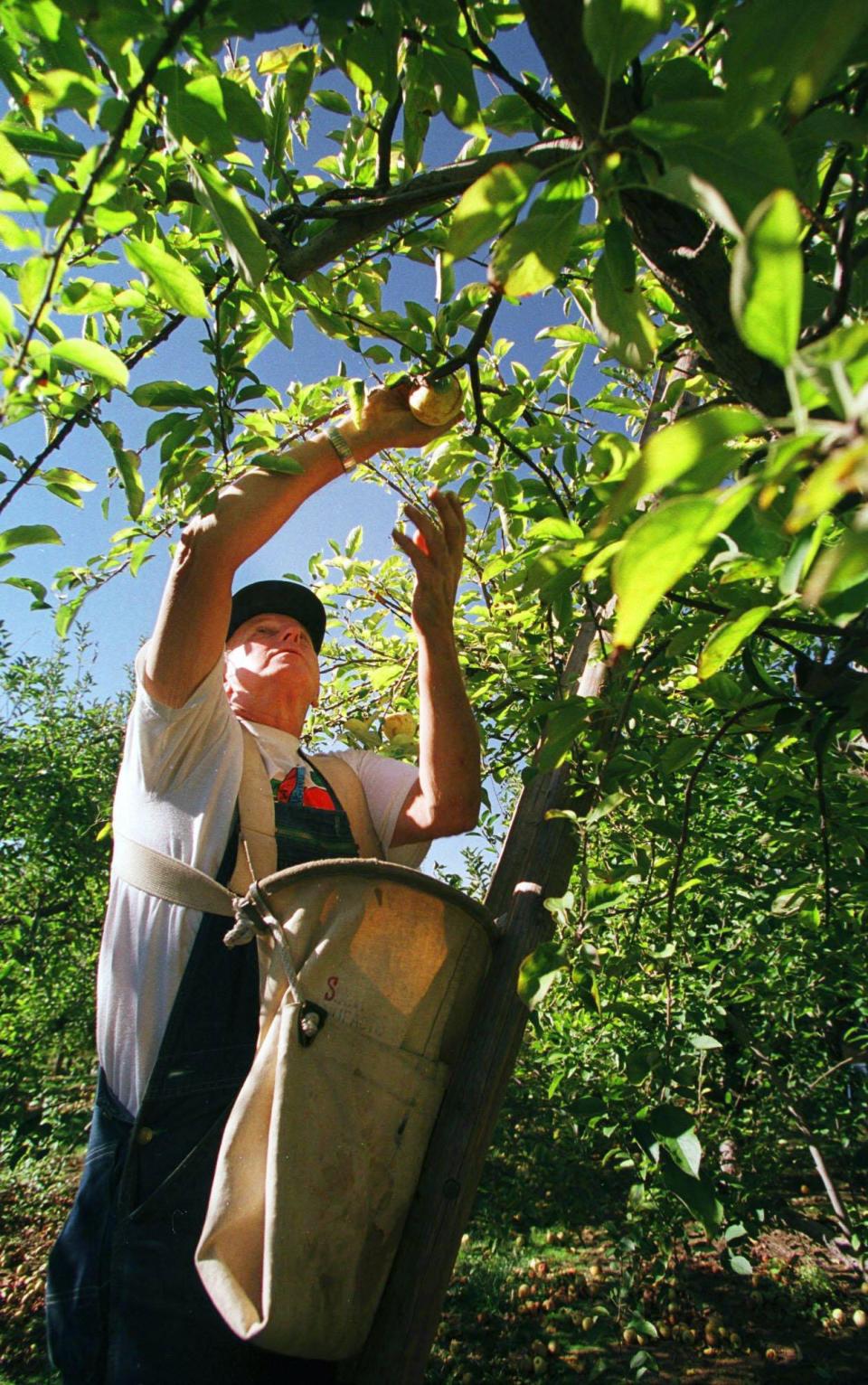Support Tennessee farmers switching from raising livestock to growing plant-based foods
The Tennessean recently reported that the cultivation of fruits and veggies may be shifting from drought-stricken western lands to states like Tennessee where water is more plentiful.
That means you’ll find an abundance of locally grown summertime favorites at your local farmer’s market. Another shift that is currently taking place is that consumers and food manufacturers are shifting toward plant-based protein like beans, seeds, and nuts, and farmers are increasing acreage of these crops to meet demand.
In July, U.S. Rep. James McGovern introduced the Peas, Legumes, and Nuts Today (PLANT) Act, which would Increase federal support for farmers growing plant-based foods. I call on my own congressman, Chuck Fleischmann, to help pass the PLANT Act to assist Tennessee farmers.
I’m a doctor, not a farmer, but I support government assistance for farmers because health-promoting foods come from farms. Plant-based foods grown in Tennessee — like blueberries, pecans, sweet potatoes, and beans — can help people prevent diabetes, heart disease, and other life-threatening conditions. In Tennessee, you see high rates of diet-related diseases but healthful, plant-based foods can put us on a path to health and healing.
Planting more fruit and nut trees can help reduce floods
In California, farmers are dealing with water scarcity, while flooding is a problem in our region. In Tennessee, farmers grow many kinds of fruit and nut trees including apple, peach, pecan, chestnut, and hazelnut. These trees can help control flooding while providing income to the farmer. Hazelnut trees, for example can be planted along rivers to reduce floods, according to the U.S. Department of Agriculture.

In the United Kingdom, scientists studied land where farmers had planted trees and compared it to areas that were used for grazing. The study found that during heavy rains, wooded areas were 60 times more effective at taking up water than land grazed by animals. Storm water flows quickly over hilly terrain that is compacted by hooves, causing rivers to rise. Orchards and woodlands, by contrast, can slow floodwaters and prevent damage to roads and houses.
In the American West, a new crop called lemna is grown in ponds sheltered by greenhouses. Lemna is a source of plant protein and the farmers who grow it sell it to food manufacturers as a replacement for eggs. This allows the manufactures to avoid the price spikes and shortages associated with eggs. When the lemna farmers needed more space, they purchased a former cattle ranch in Texas. Due to severe heat and drought, many ranchers in Texas—and elsewhere—are reducing their herds.
As the lemna-growing ponds are replacing the cattle pens in Texas, similar transitions are taking place in other parts of the country. In North Carolina, Tom Butler and his son Will are phasing out their hog farm and transitioning to growing mushrooms. In flood-prone areas, the voluntary hog farm buyout program was popular with pork producers who wanted to switch to growing crops. The farmers also agreed to plant trees along the rivers to buffer against flooding.
Switching from livestock to trees cuts carbon emissions
Why is it important for the government to provide voluntary buyouts and otherwise support the shift away from livestock production? Fruit and nut trees can be moneymakers for farmers, and like all trees they produce oxygen for us to breathe. Trees pull carbon dioxide out of the air and store it in their fibers, which reduces the negative effects of this heat-trapping gas. By contrast, industrial livestock facilities contribute to climate change because they generate methane, a powerful planet-warming gas, according to the Centers for Disease Control and Prevention.
Pecan trees are native to our region, and since they are flood tolerant, farmers can plant them on river bottomlands. Pecans are a great source of protein, calcium, iron, and other nutrients.

Next time you are at a picnic, pack your basket with health-promoting foods grown in Tennessee like peaches, pecans, berry cobbler, potato salad, and protein-packed mushroom burgers.
Dr. Suzannah Bozzone, MD, is a family physician in Signal Mountain, Tennesseee.
This article originally appeared on Nashville Tennessean: Tennessee farmers would benefit from growing more fruits and nuts

